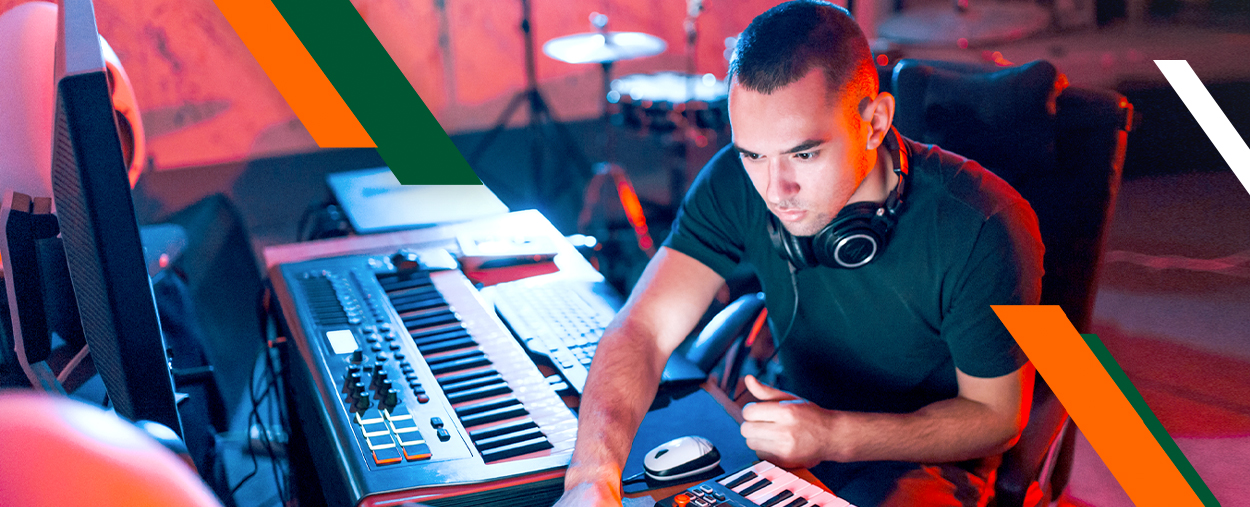
Unlock Your Creativity with a Master of Music in Game and Interactive Media Scoring
In today’s digital age, the convergence of music, technology, and storytelling has opened unprecedented avenues of creativity, particularly in the realm of video games and interactive media. If you are passionate about composing music that enhances user experiences in these fields, pursuing a Master of Music in Game and Interactive Media Scoring could be your gateway to a fulfilling and innovative career. This article serves as a guide to unlocking your creativity and harnessing your talent through this specialized program.
Understanding the Landscape of Interactive Media Scoring
The music created for video games and interactive media requires not only a keen understanding of musical composition but also a grasp of how music interacts dynamically with user choices and narratives. Unlike traditional media, where the score follows a linear path, interactive media allows players to influence their experience. This makes composing for games a unique challenge and also an exciting one. The Bachelor and Master of Music degrees in Game and Interactive Media Scoring equip students with the technical and creative skills required to thrive in this versatile field.
Exploring Music History in Video Games
A crucial aspect of a master’s program in Game and Interactive Media Scoring is understanding the historical context of music in video games. These programs often cover the evolution of videogame music from simple 8-bit melodies to complex orchestral scores that enhance the emotional connection between players and the game. By studying the successes and failures of past compositions, you will develop a deeper appreciation for the craft and improve your ability to innovate within the medium.
Curriculum Focus: Courses and Practical Application
The curriculum of a Master’s program in Music for New Media usually includes a mix of both theoretical and practical coursework. Students are often encouraged to explore various styles of composition and delve into specific subjects such as sound design, audio production, and the technological tools used in modern music creation.
Key courses might cover topics such as:
1. Interactive Music Composition: Focus on creating music that changes in response to user actions, requiring students to understand musical form and structure in a non-linear environment.
2. Sound Art: Learn about the integration of sound with visual elements in installations, expanding your creativity beyond traditional compositions.
3. Film Scoring Techniques: Although this is primarily focused on games, film scoring principles can significantly inform your work in interactive media.
Projects may involve composing scores for student-developed games or participating in collaborative projects with designers and programmers, providing real-world experience.
Mentorship by Industry Professionals
A great advantage of enrolling in a Master of Music program is the opportunity to learn from experienced composers. Renowned figures in the industry often teach these courses or serve as guest lecturers, providing students with insider perspectives and invaluable career advice. Mentorship can accelerate your learning process, helping you to refine your personal style and navigate the nuances of the entertainment industry more effectively.
Developing Your Portfolio
As you progress through the master’s program, you will generate a diverse portfolio of your work. This is a crucial aspect of preparing for a career in music scoring. Your portfolio will not only showcase your technical skills but also your ability to convey emotion and narrative through music. Including compositions from various genres and styles will demonstrate your versatility, making you a more attractive candidate to potential employers.
Networking Opportunities
Indulging in a Master of Music program also provides opportunities to build a professional network. Many programs have connections with established game studios, film production companies, and sound design firms, facilitating internships and collaborative opportunities. Networking with classmates, mentors, and industry professionals at workshops, seminars, and conferences can open doors to exciting job opportunities in the future.
Expanding Post-Graduation Options
After completing your Master of Music in Game and Interactive Media Scoring, you will find yourself well-equipped for various career paths. Several alumni go on to work as freelance composers, while others secure positions with game development studios, film production companies, marketing agencies, or even as sound designers. The skills acquired during your study will allow you to adapt to different roles in the fast-evolving landscape of digital media.
Conclusion
A Master of Music in Game and Interactive Media Scoring not only nurtures your creativity but also provides the essential skills and knowledge needed to succeed in a dynamic and growing industry. By understanding the past, mastering the present techniques, and preparing for a future full of innovation, you will be able to unlock your full potential as a composer in interactive media. Embrace this opportunity to transform your passion into a rewarding career, making music that resonates with players around the world.
